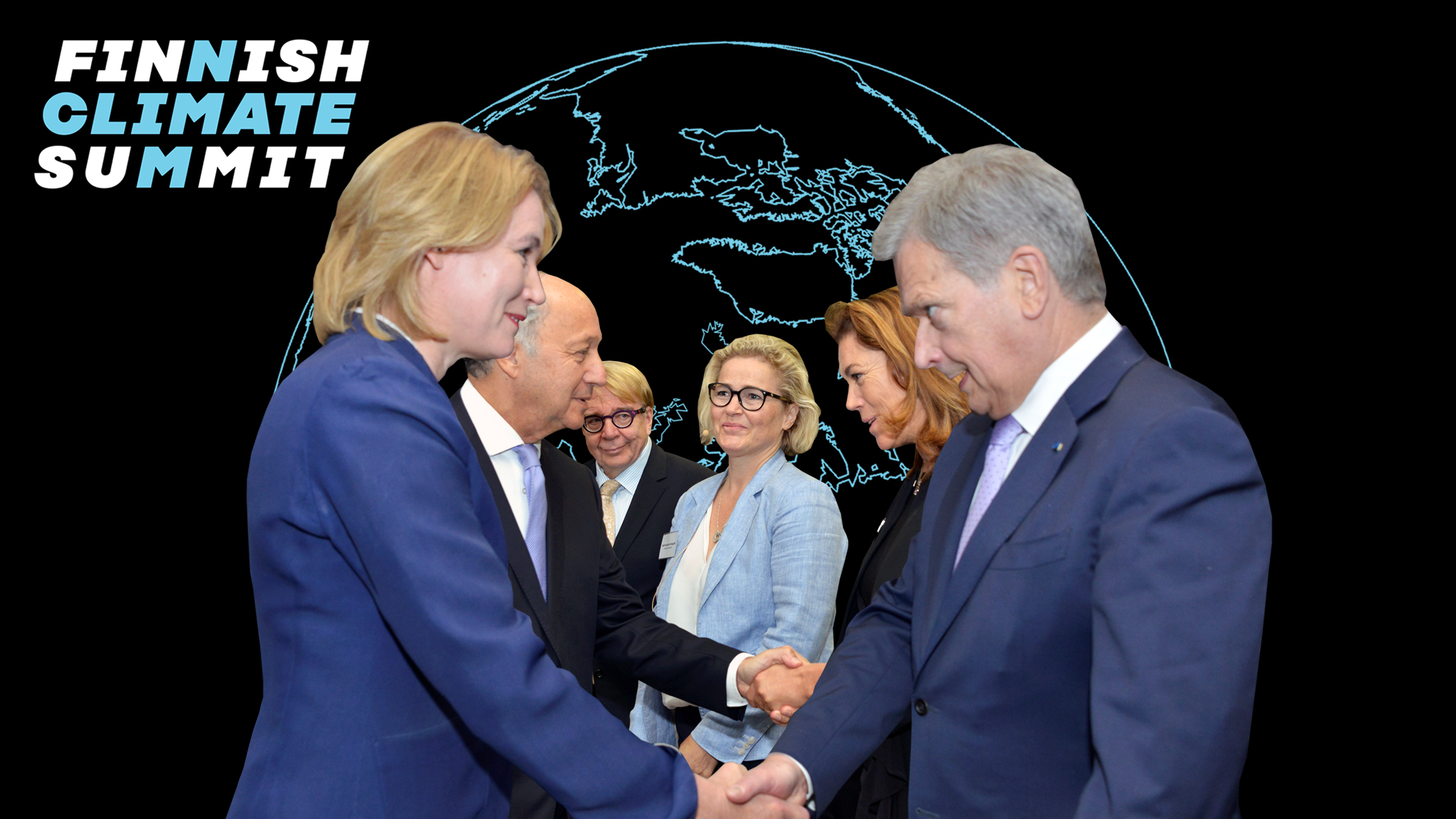The Finnish Climate Summit kicked off with an ambitious theme. Nearly 500 politicians, business leaders, scientists, NGO executives and climate influencers met in Finlandia Hall in Helsinki to discuss our common problem regarding the climate and what actions we are taking.
“This is not just another event,” said Mikko Kosonen, president of Sitra. “This is a platform for ambition, action and acceleration. This is both a serious challenge and an opportunity. This requires a common effort, everyone together.”
President of the Republic of Finland Sauli Niinistö delivered a keynote address. He stressed that climate change was not just about the environment; it was also about peace and security.
“This is a hard security issue. We could have wars over resources,” says the president. “Rising seas, the spread of uninhabitable areas and mass migration can cause both domestic and international conflicts. We must rediscover a sense of community and take responsibility. Each of us must take actions ourselves instead of waiting for others.”
A worrisome situation but reason for hope
The president was followed by Laurent Fabius, former president of the historic Paris climate conference and current president of the French Constitutional Council.
“I will speak bluntly, because sometimes it is necessary: the current situation is worrisome,” Fabius said. “Despite the success of the Paris Agreement and global efforts, the overall situation is critical and in some aspects worsening. About 80 per cent of the entire global energy mix still relies on the burning of fossil fuels. The American president announced his intention to withdraw from the Paris Agreement.”
Fabius stressed that tackling climate change should not be a stand-alone policy but a systemic one, embracing biodiversity, development, health, food, security, migrations and ultimately peace and security.
“My belief is that we need an international treaty: the Global Pact for the Environment,” he said. “The Paris Agreement was never intended as the end of the road, but as the start of new efforts. The environmental threat is planetary; the response must be planetary too.”
Businesses need to act
Another keynote speaker, Director General of the Confederation of Norwegian Enterprise Kristin Skogen Lund urged that businesses need to be involved.
“What we need is a business case for the greening of industry: combining economic value and job creation with reduced emissions,” she said. “In other words, we have to make this profitable.”
Jorma Ollila, former chairman of Nokia and Royal Dutch Shell, warned that businesses needed a price on carbon. Cap and trade systems were not implemented properly and did not reflect the real costs of emissions. Yet he did have one point of optimism.
“A majority of the states in the US are very aggressive and innovative in introducing carbon taxes or cap and trade systems. In many ways Europe looks quiet compared to what is happening in America,” Ollila said. “The majority of states don’t care what Mr Trump is tweeting.”
It’s not just national governments
Three parallel sessions took place in the afternoon, covering local government action, business responsibility and financing climate change. Ollila’s point about American municipalities was driven home with the example of Ii, a Finnish municipality which has about 10,000 residents. They are reducing CO2 emissions faster than anywhere in Finland, and plan to cut them by 80 per cent by 2020 – a whopping 30 years faster than EU targets.
The business session stressed cross-sectoral co-operation, particularly with international partners. Corporations don’t need to simply follow environmental regulations, but create sustainable businesses.
“We need to make the market economy mitigate climate change, but we also need regulation and an ambitious climate policy,” said Pertti Korhonen, chairman of DNA and Business Finland, and a board member of Climate Leadership Coalition. “When we want to solve the climate crisis, it’s not just a matter concerning our energy production and use. It is also about all resources and raw materials.”
Finance from all sectors
In the financing session Olli Rehn, incoming Bank of Finland governor, warned of a huge financing shortfall to transition to sustainable economies.
“Too long has a growing economy meant growing emissions,” Rehn said. “Multilateral investment banks can put money into green investments which will spur private investors. Already climate change is having an impact on our economies, such as insurance companies having to cover damage from extreme weather events.”
“I like the themes of the event: Ambition, Action and Acceleration,” Niinistö said during his keynote. “Those initials are AAA, which coincidently is also the highest rating an economy can receive.”
The event was organised by the Finnish Innovation Fund Sitra, along with the Finnish Climate Change Panel and the Finnish Institute for International Affairs. Sitra offsets the carbon emissions created by their events, helping to show that the time for action is now.

















Recommended
Have some more.